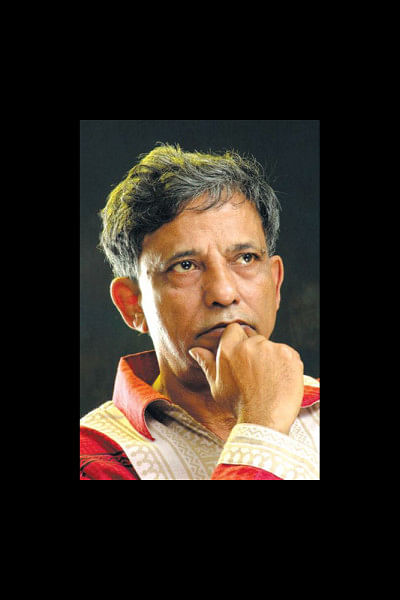Selim Al Deen: A man for all seasons

Selim Al Deen, perhaps the most celebrated name of Bangladeshi theatre in the post-Rabindranath era, was born on this day in 1949. The playwright, fondly called Natyacharya, is credited as ushering in a new era in our theatre scene through his plays and extensive research in the field.
Marking his 66th birth anniversary, Dhaka Theatre is hosting a four-day festival-- from August 18 to 21-- at Bangladesh Shilpakala Academy (BSA). The festival features a memorial lecture, award giving ceremony and staging of plays written by the Natyacharya.
The event will begin today with the placing of wreaths at the graveyard of the late playwright at Jahangirnagar University. The next day, Dhaka Theatre will stage a collage of the characters created by the playwright at the National Theatre Hall. On Thursday, Drama and Dramatics Department of JU will stage "Swarnoboyal" at the Experimental Theatre Hall.
On August 21, Selim Al Deen memorial lecture will take place at the Seminar Room of National Theatre Hall, followed by an award giving ceremony. The festival will conclude with the staging of "Nimojjon" by Dhaka Theatre at the National Theatre Hall.
Born in Sonagazi Upazila of Feni, Selim Al Deen was attracted to Bangla literature while he was growing up. But later, during his days at Dhaka University, he focused on theatre after coming in contact with Munier Chowdhury.
His plays strive to connect with the roots of traditional theatrical forms. He wrote his first drama in 1968 while still a university student. His first radio play "Biporit Tomoshaye" was broadcast in 1969, and the next year his play aired on Bangladesh Television.
Selim Al deen introduced epic realism in Bengali literature, and several of his works including "Bashon", "Atotayi", "Keramat Mangal", "Hat Hodai" and "Chaka" follow this pattern. He also brought out the folklore tradition called Katha-natya in his dramas "Joiboti Koinnar Mon" and "Hargaj." Selim Al-Deen also revived Mymensingh Geetika, and penned a few plays following the pattern.
To pursue his love of theatre, Selim Al Deen founded the Drama and Dramatics Department at Jahangirnagar University.
He was one of the founding members of Dhaka Theatre that played a vital role in the progressive theatre movement in the post-liberation period.

 For all latest news, follow The Daily Star's Google News channel.
For all latest news, follow The Daily Star's Google News channel. 



Comments